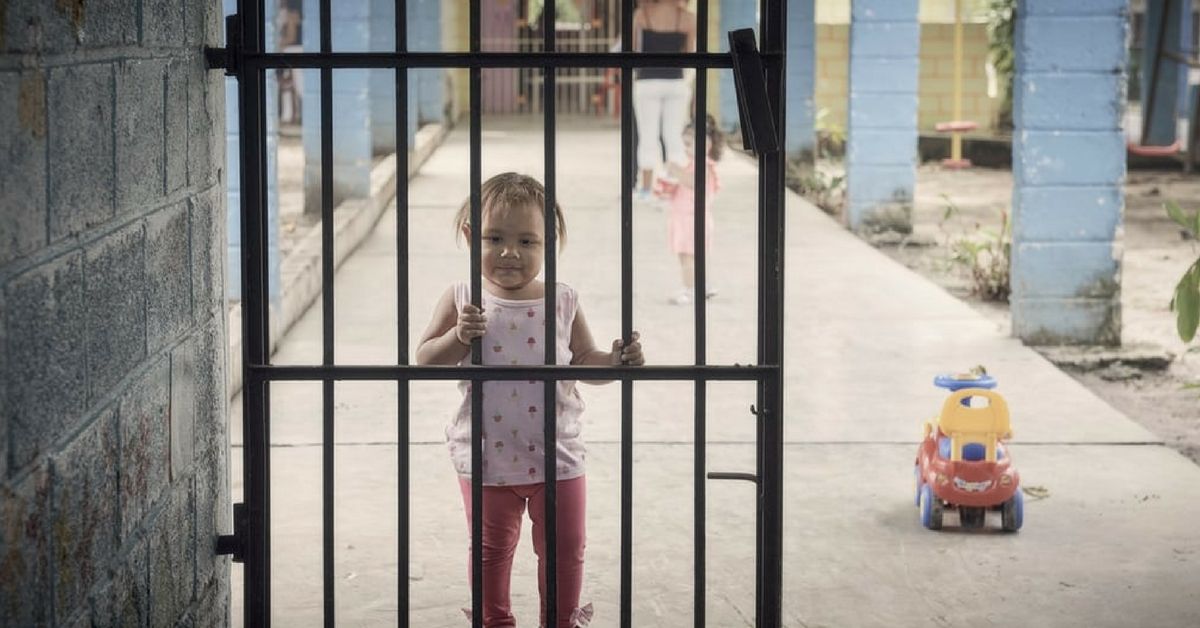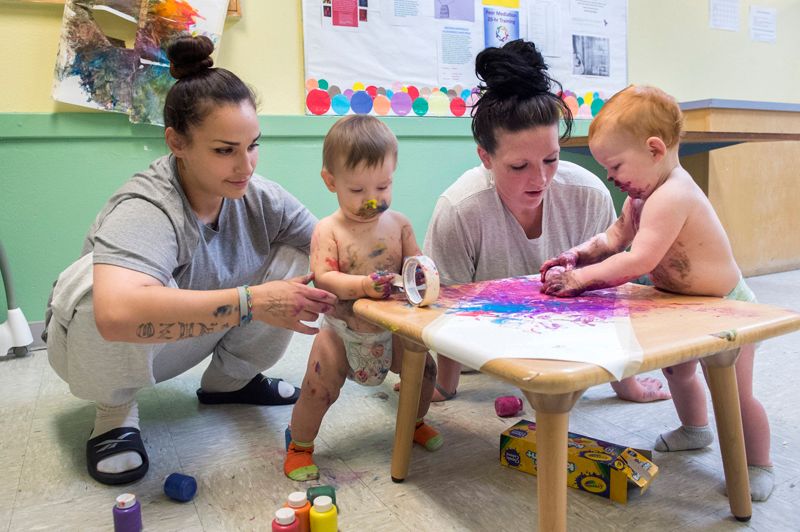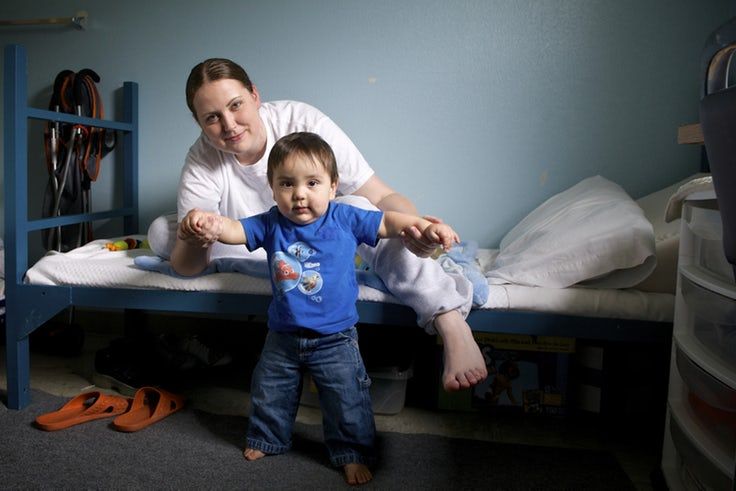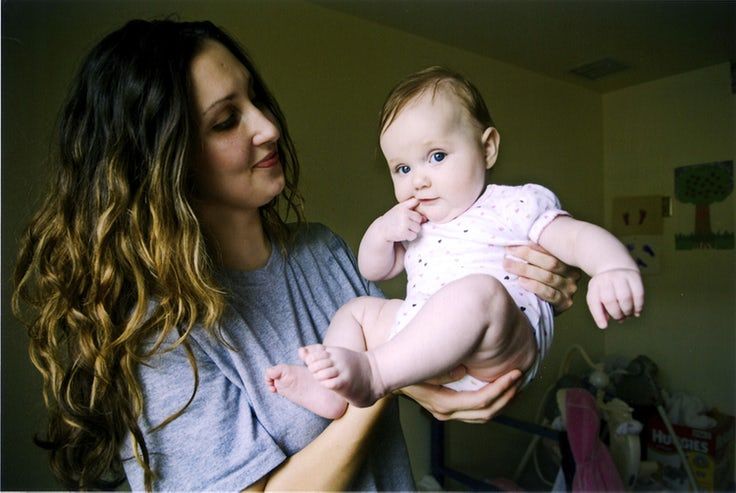While most mothers take care of their children in the comfort of their own home, not all women can say the same.
In the past, women who have been sent to prison were forced to leave their kids behind, or hand off their newborns to family members if they give birth while incarcerated.
But times are changing, and there are more than 90 countries around the world, which include Canada, the U.S., and the U.K. have started to allow female inmates to raise their children while locked up.
How it works
At Alouette Correctional Centre for Women in British Columbia, Canada, certain prisoners are given the privilege of caring for their children while incarcerated. The women are watched under supervision, and receive parenting and first aid classes, along with babysitting support.
Their offspring live with their mothers full-time up until the age of four, where they must transition to life on the outside.
According to medical studies, children who are raised in prison nurseries with their mothers are healthier than those living without them. When an infant develops an attachment to their mothers they experience social and emotional growth, have limited anxiety and depression, and have better immune system development.
"We judge these women. We say, you're a bad woman, you must be a bad mother, so we punish the child as well," said Dr. Ruth Elwood Martin, the director of the Collaborating Centre for Prison Health and Education at the University of British Columbia and a former prison physician.
A first hand experience
At Washington Corrections Center for Women in Gig Harbor, there are 14 women who are raising their children behind bars.
Inmates who have been given a prison sentence of less than 30 months are allowed to apply to the correctional facility to be a part of the Parenting Residential Program.
Sonja Alley is the correctional-unit supervisor for the program and said a woman having their child with them while incarcerated can change their lives.
"It's rewarding to see them recognize their faults, work on their faults, and in turn become better people and better mothers," she said. "We encourage women to not only support each other but really work on their self-worth and appreciate the opportunity that they've been given."
"Certainly, in the majority of cases, I feel like the child needs to be with their mother," she added. "Some say that the mom doesn't deserve their child in prison. Maybe that is true, but the child certainly deserves their mother."
Karen Garcia agrees with Alley's sentiments and is thankful she's been allowed to raise her daughter within the prison.
"This program has saved my life," Garcia told PEOPLE. "It's made me into a mother I never could have been if I were out on the streets."
"I've opened my eyes and changed my life around," she continued. "I'm not a bad person, but I've made bad choices. Your past doesn't have to define you, and it doesn't have to define your future."
Since Garcia was handed down a five-year sentence for selling methamphetamine and a firearm, she wasn't initially qualified for the program. Even though 20 months had been waived from her sentence due to good behavior, she was still 10 months over the program's 30 month limit.
But after an appeal, Garcia was allowed into the program, and vowed to get her life back on track. Along with attending parenting classes, the mother-of-two is getting drug treatment and is a part of the prison's Trades Related Apprenticeship Coaching Program. She's learning the craft of carpentry in hopes to find a secure job with union benefits upon her release in 2019, something she's looking forward on doing.
"I'm going to be able to get out, be a mom and have a career," Garcia proudly announced.
Controversy
While studies have reported on the several benefits of prisoners raising their child while incarcerated, not everyone agrees - and they haven't for nearly a century.
"If we were more than three degrees removed from the level of the chimpanzee," a writer for the Newspaper Enterprise Association wrote in 1930. "The bare announcement that thre [sic] was even one baby in prison, anywhere in the land, would stir us to a yell of protest that would rock that prison to its foundations."
James Dwyer, a family-law professor at the College of William & Mary in Virginia, said in 2014 that he doesn't agree with children being raised in a prison, regardless of the type of programs offered to the inmates.
According to Dwyer, studies surrounding the prison nursery program are unreliable "because they compare the general prison population to a carefully screened group of mothers already less likely to reoffend."
He also iterated that recidivist studies often report inaccuracies, because they fail to include the statistics of offenders who have been kicked out of the program throughout the years.
As an alternative, Dwyer babies born to incarcerated mothers would be better off by either being put up for adoption, or given to a temporary caregiver - but only if the mother's sentence is less than seven months.
"The women in prison are not normal people who happen to get arrested for the first mistake they've made in their life," Dwyer told The State. "These are people who have deep-seated problems that prison only tends to exacerbate. And babies don't fix them."
The critic for prison nurseries added that while each applicant is screened to see if they would be eligible for the program, being incarcerated alone makes them until to have custody of their child, based on its unconstitutional nature.
"There would likely be widespread public outrage if any state began putting mentally disabled or senile adults in prisons with incarcerated relatives in the hope that this would reduce recidivism and provide some benefits to those incompetent adults," Dwyer wrote in the paper, Utah Law Review.
But luckily, there are more advocates than critics, who like Alley, explain these types of programs have the power to change a mother's life.
"When we take their babies away from them "” and I've heard this over and over "” they say, 'I just give up,'" said Michele Thrush, who is one of the program's counselors at the Washington Corrections Center for Women. "They have that mentality where, 'I've lost my child, so I'm a loser, I'm no good, I'm a terrible parent "” so I might as well make that come true.'"
However, once the women enter these programs with their children, their attitudes drastically change, and they begin to say, "I see they have hope," Thrush added.
"I see them starting to think differently about what their lives can actually look like, instead of going back to what it was," she concluded.
Do you think women should be allowed to raise their toddlers in prison? Let us know!
[H/T: Atlantic, Huffington Post, People, The State]






